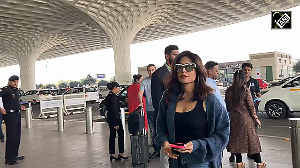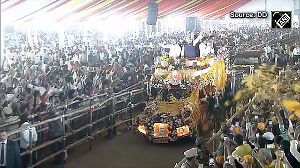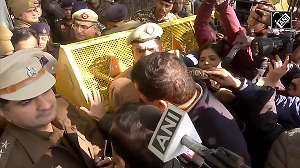Muslims have marginal representation in the state’s industry chambers

Enterprises run by Muslims account for 20-23 per cent of the MSMEs in the state. The annual turnover of most of these units, however, is only Rs 1-5 crore
Safibhai Maniar, owner of Maniar & Co, which deals in material-handling equipment, had his entire business set-up gutted in 2002. That wasn’t the first time the Maniar family had to start from scratch. In 1946, Safibhai’s father had started as a handcart maker and the family had faced mob fury during riots in 1969, 1985, 1992 and 2002.
The Maniars have learnt an important lesson. “Pay your taxes, insure your business and maintain cordial relations with your neighbours,” says Maniar, who has bagged 11 export excellence awards in the micro, small and medium enterprises (MSMEs) category from the Engineering Exports Promotion Council, as well as an award for the best innovative industry in Gujarat from Narendra Modi (as chief minister of the state) in 2011.
Even as a recent first information report filed at the police station in Rakhial (where Maniar runs a factory) mentions the word ‘Pakistan’ to talk about a handful of people involved in a brawl, Maniar says the thought of leaving Gujarat has never crossed his mind.
His company, which counts the likes of Adani Ports, Ashok Leyland, Tata Motors, Gujarat Maritime Board, Gujarat State Road Transport Corporation and Steel Authority of India Ltd among its clients, exports 24 per cent of its production. While most businessmen shied away from disclosing the turnovers of their privately-held firms, Maniar says his is a Rs 25-crore company.
The story of Zakir Hussian is similar. Hussain’s shops were gutted during the 2002 riots in the state. From humble beginnings as a tea vendor in the Kalupur area of Ahmedabad’s old city, the Hussains have come a long way. Now, they employ about 500 people in their hotels and restaurants across the city. But Hussian isn’t considering expanding beyond the state. “It’s easy to do business here. Business is in a Gujarati’s blood, and I am a Gujarati,” he says.
Zafar Sareshwala, chancellor of the Maulana Azad National Urdu University and a prominent member of the Muslim community here, says enterprises run by Muslims account for 20-23 per cent of the MSMEs in the state. The annual turnover of most of these units, however, is only Rs 1-5 crore. Firms with a turnover exceeding Rs 10 crore would at best account for one per cent of the MSME units here.
Typically, Muslims here are present across businesses such as stationery and printing, industrial valves, pipes, and submersible pumps, apart from food processing, textile printing, and hotels and restaurants. The Sunni Bohra community (there are about 2,000 such families in Ahmedabad) operates in the industrial valves, printing and pumps segment, while the Chipa community (concentrated around the city’s Jamalpur area) is into textiles and power looms. Another prominent section, the Chilea Muslims, is into hotels and restaurants.
Is it hard to do business in Gujarat? The Muslim community doesn’t think so. “As the Gujarat government tried to woo big companies and worked to create an efficient bureaucracy, cutting red tape, it helped everyone. Muslims also benefited from this drive. Yes, the government has hardly made any effort to connect with the larger community, beyond the successful businessmen. The community at large has remained in the ghettos,” said a city-based businessman.
Sareshwala disagrees. “One has to come out and join the mainstream. There can be no other way about it. After all, it is a democracy and numbers do the talking, whether it is at a chamber of commerce or any industry body,” he says.
Muslims have marginal representation in the state’s industry chambers. Maniar, an executive committee member of the Gujarat Chamber of Commerce and Industry, admits the general representation of the community has been poor.
Businessmen say years of inertia keep them from joining such bodies. On condition of anonymity, an ex-chairman of a leading industry chamber here said, “At chambers, there has never been any discrimination against Muslims. But their share in the manufacturing and services sectors has remained low and they have stayed away from joining as members. As members, they could possibly take advantage of the several training workshops we hold.”
In early 2014, a business conclave, ‘Business in Harmony’, was organised by Ummat, a portal run by the Muslim business community in Ahmedabad, in association with the state government’s investment promotion agency, iNDEXTb, which organises the ‘Vibrant Gujarat’ summit. Narendra Modi had made the inaugural speech at the conference, highlighting his eagerness to reach out to the members of the community.
One thing’s certain: Mainstream or not, Ahmedabad’s Muslim businessmen have learnt to run their trade in a communally divided society.







 © 2025 Rediff.com -
© 2025 Rediff.com -